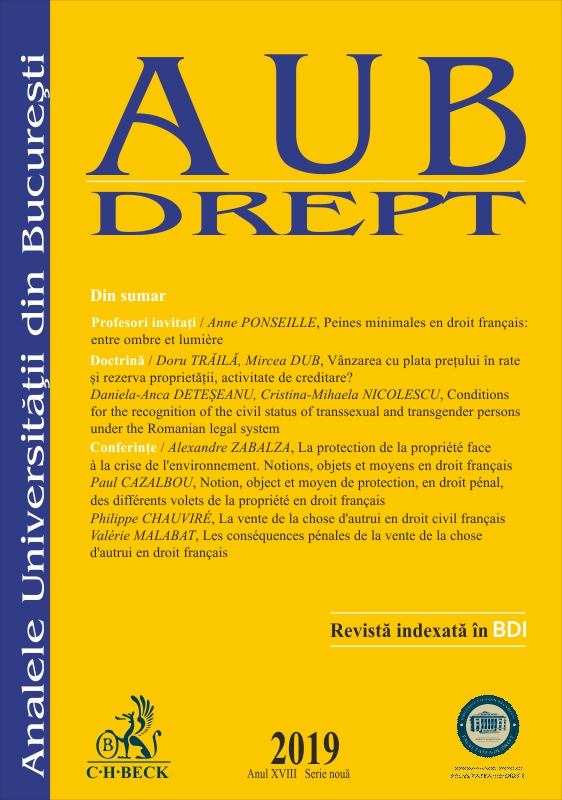Cultura – Parte componentă a relaţiilor internaţionale ale Uniunii Europene
Culture – A Component of the European Union’s international relationships
Author(s): Augustina-Mihaela DumitrașcuSubject(s): Law, Constitution, Jurisprudence, EU-Legislation
Published by: C.H. Beck Publishing House - Romania
Keywords: culture; multiculturalism; competences; European Union; external relations;
Summary/Abstract: According to the European Commission, culture and creativity are at the heart of the European project. Cultural diversity is an asset for the EU, but according to the findings of this institution, linguistic and cultural differences have the effect of fragmenting the market. At the same time, Europe's culture and creation sector contributes to economic growth, employment, innovation and social cohesion, the European creation and culturesector being more resilient than other sectors in an economic crisis, accord to the official site of the European Commission.From the point of view of competences, it should be noted that each EU country addresses cultural and audiovisual issues in its own way. EU action is complementary to national measures, bringing a new dimension, these are complementary competences. In the Commission's wording, the information gathered by the EU can be used as a support for national decisions or can provide examples of good practices from which others might inspire. With regard to the EU's cultural objectives, we have to mention the 2007 European Agenda for Culture, a very important document that promotes: cultural diversity and intercultural dialogue, culture as a catalyst for creativity and innovation and culture as a component of relations international relations of the EU.An important aspect is also the fact that as part of the UNESCO Convention on the Protection and Promotion of the Diversity of Cultural Expressions, the EU has committed itself to transforming cultural diversity into an essential element of its external action and giving Europe a more active cultural role in international relations. In this article, we will go through EU's competences regarding culture within its borders, but we will also see how this organization addresses culture as an element of its international relations. And then, we will have a brief look at how multiculturalism is currently approached within the EU, in the special and complex context of migration.
Journal: Analele Universității București – Seria Drept (AUB)
- Issue Year: 2019
- Issue No: 1
- Page Range: 109-125
- Page Count: 17
- Language: Romanian
- Content File-PDF

